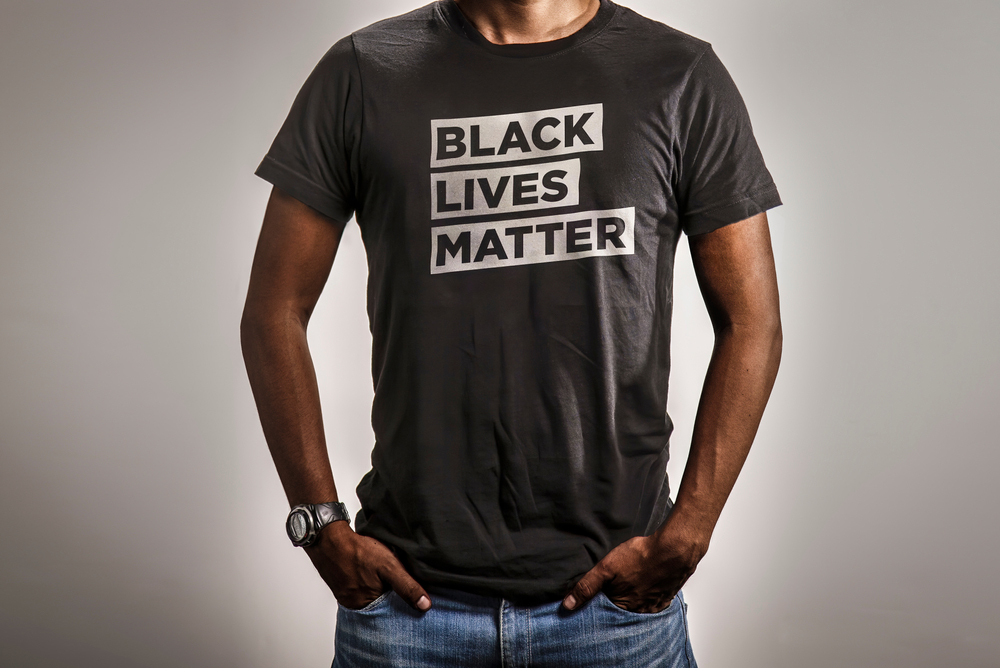Whole Foods employees wearing Black Lives Matter (BLM) masks and attire filed a class action lawsuit against the grocery company and Amazon after being prohibited from wearing the gear with the BLM messaging and disciplined for doing it anyway. They alleged race-based discrimination and retaliation claims. The U.S. District Court for the District of Massachusetts dismissed almost all of the employees’ race-based claims. Although the court implied the two companies acted unfairly or unwisely toward the employees, it determined their actions weren’t unlawful.
Whole Foods’ Dress Code And The BLM Movement
Whole Foods has maintained a company-wide dress code prohibiting employees from wearing clothing with visible slogans, messages, logos, and/or advertising that aren’t company-related. In the wake of George Floyd’s death and nationwide protests against racial injustice and police brutality, people around the country started showing their support for the BLM movement.
Beginning around June 2020, the Whole Foods employees demonstrated their support for the BLM movement by, among other things, wearing face masks and other attire with BLM messaging to work. As grocery store employees, they were required to wear masks because of the global COVID-19 pandemic.
Whole Foods began disciplining employees in a variety of ways for wearing the BLM masks and other items. For example, at a store in Massachusetts, employees wearing the masks or other attire were sent home without pay and given disciplinary “points,” the accumulation of which can affect their annual wage increases and ultimately result in termination. In response, some employees quit, others acquiesced and stopped wearing the BLM attire, and still others continued to wear it in protest.
According to the allegations, until the workers began wearing the BLM masks and attire in June, the dress code was rarely enforced. Whole Foods employees previously wore a variety of items in violation of the policy and weren’t disciplined (e.g., items with LGBTQ+ or National Rifle Association messaging).
The individuals who filed the lawsuit—almost 30 Whole Foods employees and one person who worked for Amazon—further argued wearing the BLM attire was a demand for better treatment of black employees and challenged what they perceived to be racism and discrimination by the grocery company for not allowing them to don it.
Title VII Discrimination Claims
The employees specifically alleged Whole Foods’ and Amazon’s selective enforcement of the policy constituted unlawful discrimination in violation of Title VII of the Civil Rights Act of 1964, the federal antidiscrimination law, and was intended to suppress the BLM messaging.
Among other things, Title VII prohibits race-based discrimination. Under the law, the bias must be “because of [the] individual’s race” to be unlawful.
Whole Foods and Amazon asked the federal district court to dismiss the discrimination claims, and the court agreed. While implying the employers’ aggressive discipline of employees for wearing the BLM attire may not have been the fairest or wisest course of action, the court nevertheless found they didn’t violate the law.
Notably, the employees did not claim (1) Whole Foods or Amazon disciplined them because of their race, (2) the companies applied the dress code differently based on the race of the employees violating it, or (3) the policy’s application had a disproportionate impact on workers of any particular race. Nor did they allege they were advocating for black employees being mistreated by either company.
Therefore, the court held the employees’ Title VII discrimination claim should be dismissed. The employers’ allegedly inconsistent enforcement of the policy wasn’t race-based discrimination, and Title VII doesn’t protect free speech in a private workplace.
Title VII Retaliation Claims
The employees also alleged Whole Foods’ and Amazon’s discipline of them for opposing the discriminatory policy (i.e., not allowing them to wear the BLM masks at work) was unlawful retaliation in violation of Title VII. Notably, the Act also prohibits retaliating against employees for opposing discriminatory practices or engaging in protected activity, such as making an internal complaint or filing a discrimination claim with a state agency and/or in court.
The court dismissed all but a single employee’s retaliation claim based on her termination. With respect to the others who sought to file the lawsuit, the court rejected the argument that wearing the BLM attire is protected conduct under Title VII because they were doing it to protest racism and police violence against black people and show support for black employees.
Simply put, the employees’ allegations couldn’t support a Title VII retaliation claim because they weren’t done to oppose any practice made unlawful under Title VII. According to the court, the lawsuit didn’t provide enough information to support the inference that each individual employee wore a BLM mask in “opposition” to perceived discrimination and was then disciplined for doing so. Frith et al. v. Whole Foods Market, Inc. and Amazon.com, Inc. (February 5, 2021).
Bottom Line for Employers
As much as the court didn’t appreciate Whole Foods’ and Amazon’s selective enforcement of the dress code policy to suppress certain speech, nothing about it was unlawful (with the exception of one person’s retaliation claim). Still, the court’s tacit disapproval provides a good lesson for employers.
Even though you may have the legal right to adopt and enforce a policy or workplace rule, you should weigh the practical impact on employee morale and potential public relations issues. Carefully considering those kinds of issues might save you from defending against unflattering allegations in a public forum and incurring the monetary (and other) costs.
Meaghan E. Murphy is an associate at the firm of Skoler, Abbott & Presser, P.C., in Springfield, Massachusetts. You can reach her at mmurphy@skoler-abbott.com.

